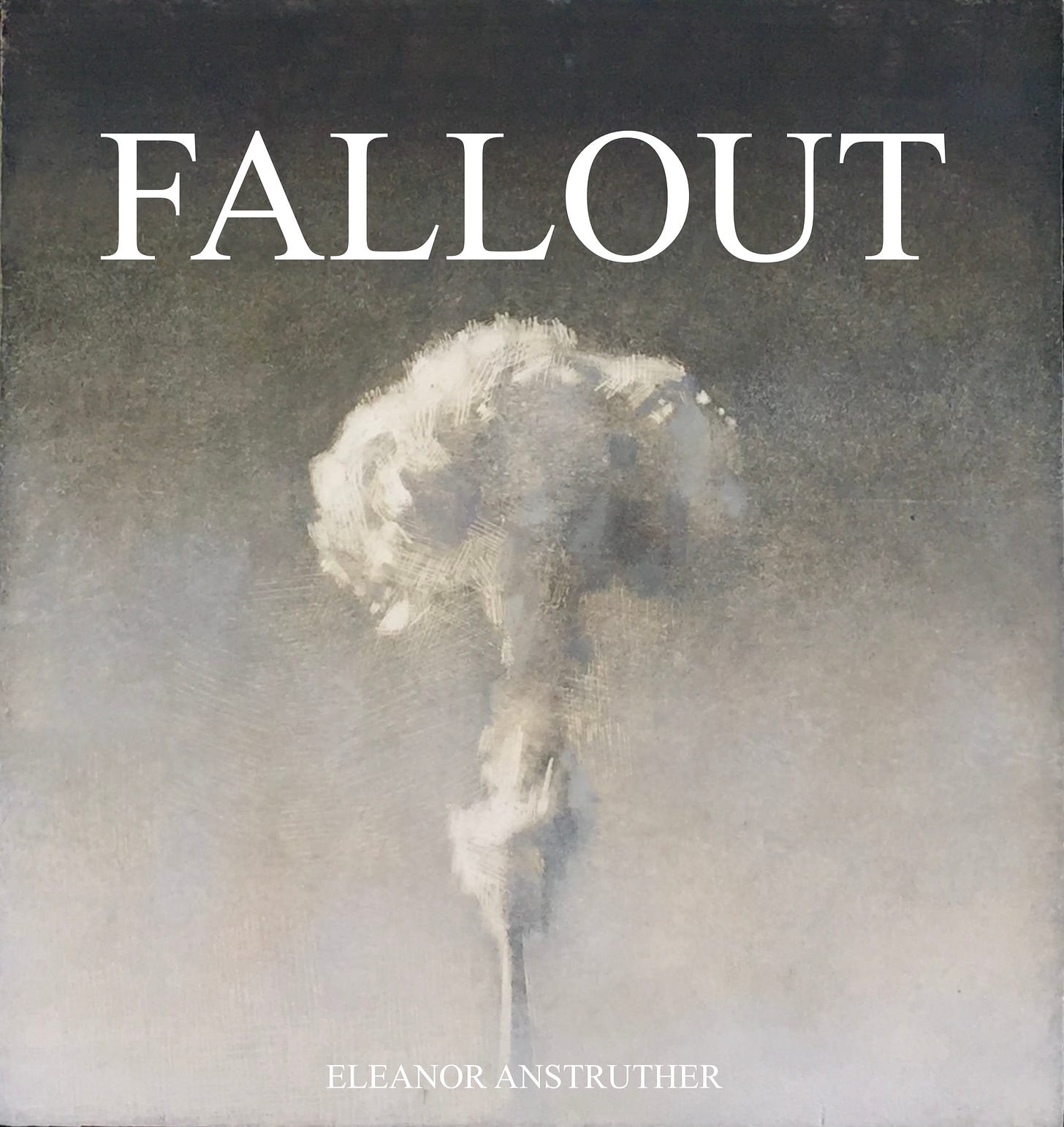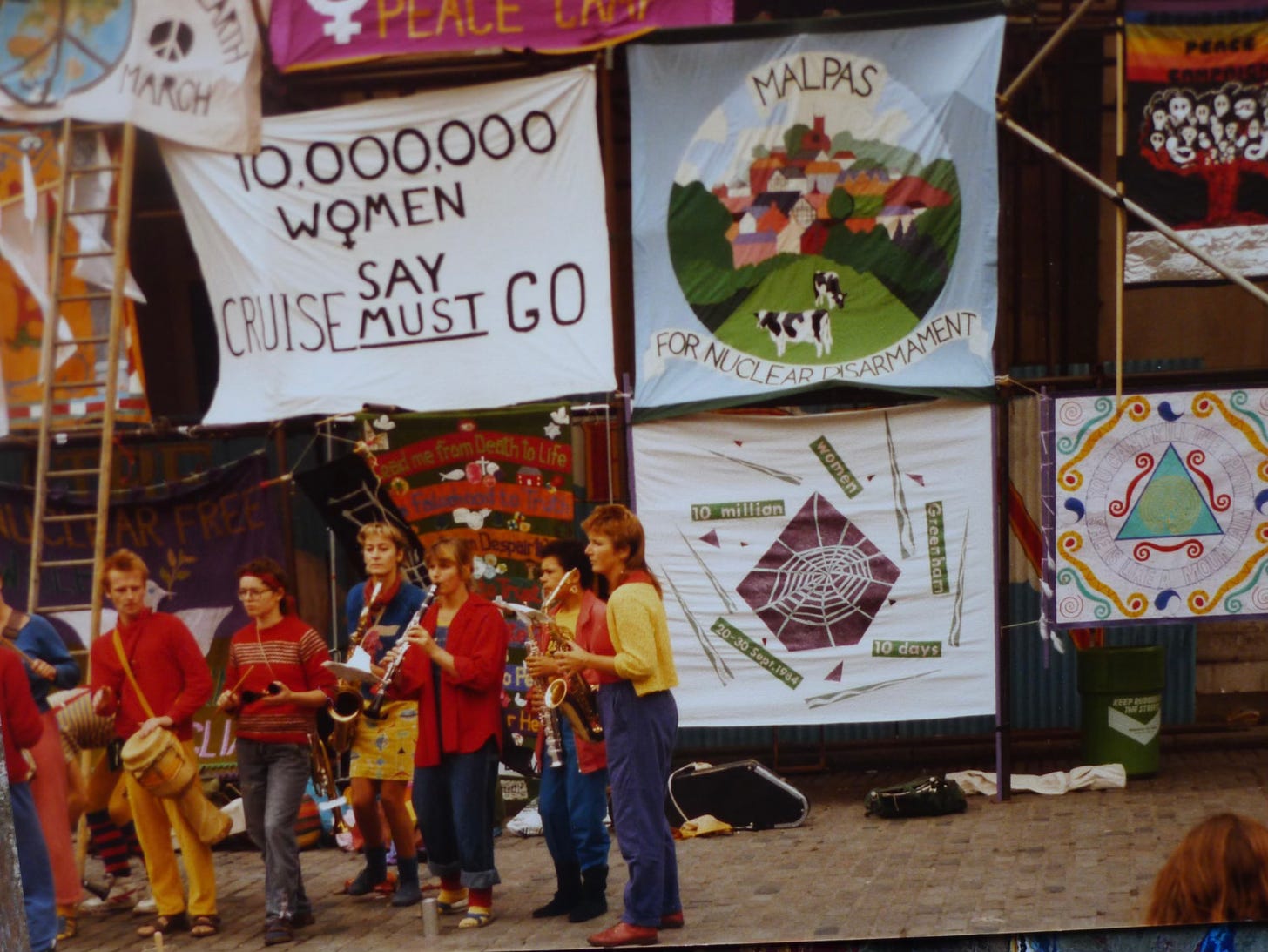“What’s got into her?” Cerise sniffed and wiped her nose with the back her hand.
Dawn shrugged. They looked at Bridget who hadn’t spoken all morning, not since Dawn had rolled over on the couch and gone back to sleep. When she’d woken up again and Cerise had reappeared they’d gone to a café.
They sat at a table, Formica peeling, Bridget flicked an unstuck end with her finger.
“Did you fancy that woman?”
“What woman?”
“The one last night.”
“I told you, I’m not gay. And even if I was, I wouldn’t fancy her.”
“No one fancies her. She’s rank,” said Dawn.
Dawn paid for the teas and full English, Cerise paid for her own three cups of coffee. Disgusting was her only comment on the fried eggs and bacon and sausages that Dawn and Bridget demolished. Dawn stopped Cerise from going on about Spanish coffee with a look that said she’d heard it twenty times before. “You can sign on now, you know,” she added in response to Bridget’s thanks.
“Will you come with me?”
“Just go to the jobseekers. You know where it is.”
“Can’t you come too?”
“Is that what this is?” said Cerise.
“You’re not a kid anymore, Bridge. Nothing’s stopping you.”
“Except your face,” Cerise poked Bridget in the ribs like her dad used to. “You didn’t have fun last night?”
“I need a bath,” said Dawn.
Bridget thought of the bathroom at home, the windowsill crammed with plastic tub of old toys, Paul’s comics, a spider plant only her mum watered. She thought of the cupboard at the end that wouldn’t shut, clean towels always spilling out of it, the shelf of green tiles where they kept their tooth mugs, the little plastic horse rearing with a knight on its back. She thought of steam and hot water, of letting her head go under, of blowing bubbles, of wrapping herself in her mum’s big towel and putting on clean clothes. She thought of her dad.
“Can I borrow ten pence?”
There was a phone box by the toilets. She rang home. She stood there waiting, heart beating, planning what she’d say, how she’d say, Yeah, hi, it’s me, alright don’t freak out, no I’m not coming back I just want to – but she couldn’t think what she just wanted to; she couldn’t tell them she wanted to check they still existed so she could hate them, so she could tell them to go fuck themselves. She wanted to stomp up the path and in the front door and ignore their pleading. She wanted to kick in the other walls of the downstairs toilet and throw all the toilet roll and buckets in the garden and kick down his shed and kick him. She wanted to walk out again and leave them crying after her. She almost put the phone down with a, Fuck them, why should I? when she realised there was no one picking up. She let it trill three rings longer.
Maybe her dad had killed her mum. Maybe they were all three lying in a bloody pool, her mum, her dad, the cat, Paul on top of all of them, killed by a green heel in her dad’s hand. Maybe he still had his make up on and the police wouldn’t recognise him, think a huge Hot Lips Houlihan had gone psycho in Hampton Close. They’d be putting up posters of her dad in women’s army fatigues with Information wanted written underneath. His face beneath a blonde wig and sharp green hat would be on the front page of the Daily Mail with the headline Killer Woman. She offered Dawn her ten pence back. Dawn said, “Keep it,” lent her a quid, and pointed the way to the tube.
At Oval station she took the bus to Vauxhall and changed onto the train, leaving the river muddy and brown. He could have come out of the Tavern and taken a dive, she wouldn’t put it past him, he was forever falling over, her mum called him, Two left feet. He could be floating downstream to Greenwich, his make-up streaked, his neat bun come undone and spread out like blonde seaweed; she imagined his fake, blow up tits buoyant in the river, his face drifting.
She jumped the barrier and ran down the steps to shouts behind her. If he was dead, he deserved to be. She’d never tell, except the body wouldn’t be her dad it would be Major Hot Lips Houlihan and if her mum was called to identify the corpse she’d say, No, that wasn’t her Ray, and then he’d be a missing person forever and only Bridget would know. He’d get buried in an unmarked grave and then Juliet Bravo off the TV would discover the truth and have him dug up and it would be all over the papers and Bridget would have to move to Australia where no one would ever know. Or she’d go to Greenham for as long as it lasted, and then she’d go somewhere else. She’d sign on. She’d live in a squat where no one asked questions.
There was a girl opposite her in the carriage; headphones, a Walkman in her hand, tartan loafers on her feet and Levi jeans worn casually, the kind of girl who looked good in anything, a scarf like Pat Benatar wrapped around her neck, black and white and tasselled. Bridget had been going to ask for a Walkman for her birthday, back when it was the new school year, and she was still a kid, and she hadn’t known anything about anything. She’d been going to ask her dad to buy her one to give her something to do when the bomb dropped and they all had to live in the downstairs toilet. The girl’s eyes flicked at Bridget and flicked away. She was pretty, like Bridget had never felt pretty in her life, the kind of pretty that boys wanted, like Peggy Hilperton who’d stopped coming to Greenham. Her mum had said to Bridget, We feel it’s important she gets her exams as if it wasn’t important for Bridget. Her mum had broken in the fence with them and run off in that stupid unicorn costume when the police arrived and for a moment Bridget hadn’t cared about ages and mums and who did what. They’d all been people together, humans, described by fun fur and running from the police and stopping a bomb.
The walk home from the station past the cemetery took half an hour. No one about but a funeral corsage, snaking its way past her, the slow procession of black and mourning, a hearse turning in at the gates. Bridget watched, imagining for a minute that it was her dad, that she’d missed a chunk of time, that she was space travelling, left her body, would see herself in the car that followed. A shiver ran through her, but she told herself she didn’t care, why should she, it was his funeral, she hadn’t made him do it. But she skirted the cemetery instead of walking through it, and she walked a little faster. It would all be all right, why should she feel sorry for him, she’d get home and he’d be there, pretending like he always did, leaving his breakfast things for her mum to clear up, going off to his shed. She’d wash and eat and then she’d get the fuck out. She wasn’t going to stay, maybe, she thought as she turned the last corner, this had all been a really bad idea.
But when she arrived at her house, his car wasn’t there. And when she looked up at the windows no face looked back, and when she listened through the letter box, there was silence.







God I admire Bridget’s rage, even if it’s only in her imagination. You take us there with such deft, visceral vulnerability.
Her anger let's me know why she wants to stay away from home.